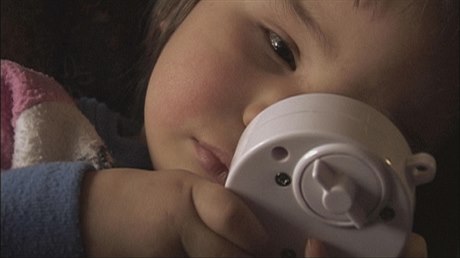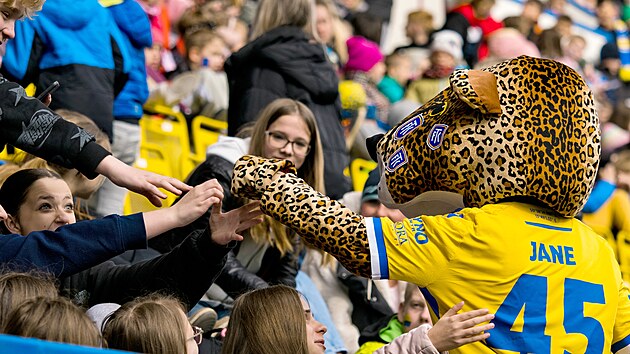A film festival featuring mainly Czech cinematography, both contemporary and classics from various eras, is celebrating its 25th anniversary by showcasing some 170 films in seven days and an especially rich accompanying program.
Apart from the traditional sections, the festival in Plzeň, West Bohemia, known for short as Finále (an abbreviation from FIlmy NAšich Let, or Films of Our Age) this year introduces a new section, ZOOM, to focus on what neighboring countries have been cooking up in their pots of cinema art.
“After last year’s festival, and also since Plzeň has been selected as the [European Capital of Culture 2015], we have decided to add a bit of an international touch,” festival director Ivan Jáchim told Czech Position.
This year, that special section’s focus is on Poland. “There were several reasons why we chose Poland: first, Czech films are well known and respected in Poland but not vice versa; second, we’d like to use the opportunity to share the artists’ experience during workshops focused on cinematography legislature in Poland, what benefits it brought the artists and what we should be cautious about,” Jáchim said. “We would also like to talk about regional funds to support cinematography, which are already working in Poland and are in the preparation stages here.” ‘Czech films are well known and respected in Poland but not vice versa.’
From the eight films that will be screened in the ZOOM section, two are restored jewels. These films, however, have not been chosen randomly. “We chose two restored films by Janusz Majewski because many Czech actors and artists participated in making them.”
The first film, “Pacific Hotel” (Dvojí svět hotelu Pacifik/Zaklęte rewiry), which portrays the dark side of life at luxury hotel during the 1930s, was shot at Prague’s Municipal House. It stars the well-known Czech actor Roman Skamene in leading role and was shot by Miroslav Ondříček, the Academy-Award nominated cinematographer of Miloš Forman’s films “Ragtime” and “Amadeus.” The second film Jáchim recommends, “The Brand of Cain” (Kainovo znamení/Czarny wąwóz), a spy-film set in 1866 during the Austro-Prussian War, was chosen because it’s based on a screenplay by the Czech writer Vladimír Körner.
Other films in this section include examples of contemporary Polish cinema, such as Greg Zglinski’s award-winning study of morality and heroism “Courage” (Wymyk) and the Oscar-nominee Bartosz Konopka’s visually stunning psychology drama “Fear of Falling” (Lęk wysokości).
Another film worth seeing from this section is Krzysztof Zanussi’s “Camouflage” (Barwy ochronne), a 1976 psychology drama from a linguistic summer camp. Zanussi is not only a guest at the festival, he is on the international jury, which will choose the best Czech feature film to receive the Golden Kingfisher (Zlatý ledňáček) award.
The jurors will not have it easy this year since the main competition of feature-length films includes such masterpieces as Zdeněk Jiráský’s “Flower Buds” (Poupata), this year’s Golden Lion winner portraying a dissolution of gambler’s family; Olmo Omerzu’s “A Night Too Young”, the only Czech film presented at Berlinale this year; Robert Sedláček’s “Long Live the Family” (Rodina je základ státu), a family road-movie contemplating morality and crime in Czech lands; and Martin Šulík’s “Gypsy” (Cigán), a young boy’s change of life set in eastern Slovakia.
“Gypsy,” which premiered at the Karlovy Vary Film Festival last year, won praise from critics and took homethe Special Jury Award, while the lead actor Ján Mižigár won a Special Mention.
Finále will devote this year’s tribute section to the director Martin Šulík and showcase his early and most acclaimed work. “Šulík is not a grumbling artist, but a working one. He doesn’t avoid utilitarian contracts to be able to develop his original work. The origin behind his work is an effortless altruism not only when it comes to his own work but also in his approach to the history of cinema and its future,” said Jan Lukeš, the festival’s dramaturgist.
Apart from the competing film “Gypsy,” five of his previous films will be showcased as a tribute to this extraordinary director of contemporary Slovak cinema including: “Tenderness” (Neha) one of the director’s first films; “Everything I Like” (Všetko, čo mám rád), about a man’s mid-life crisis; and his award-winning “Garden” (Zahrada), a poetic back-to-the-roots tale.
Apart from feature films, documentaries also compete for the best film since 2003. Apart from the winner of the Jihlava International Documentary Film Festival and the Golden Lion-winner “Solar Eclipse” by Martin Mareček, a witty portrayal of two electricians’ struggle to help electrify Zambia’s poor town, there is also Czech public television’s collaborate work of 24 Czech directors (called “24”), and provocative directorMartin Dušek’s latest, “Mein Folk Costume,” in which he questions the traditions of a Sudeten German association. Finally, there is Karel Vachek’s latest, “Obscurantist and His Lineage,” a 199 minute-long essay on mysteriologists’ lives.
To continue with last year’s family saga, the Trojan family will be in the spotlight this year. The well-known actor Ladislav Trojan and his two sons (Ivan, an award-winning actor, and Ondřej, a director and producer), will talk about their family and work with the audience throughout the week.
To celebrate the 80th birthdays of director Miloš Forman and costume designer Theodor Pištěk, the restored classic “Markéta Lazarová” will be shown as well as the director’s cut of Amadeus.
However, if all these films aren’t enough, Finále has a real treat for real aficionados and fans of the television series “Therapy” (Terapie), starring Karel Roden and shot by acclaimed Czech directors such as Petr Zelenka, Marek Najbrt and Jaroslav Fuit (come and see what it is!).
Open air screenings also won’t be missing this year. Five films connecting the main theme of madness will be screened every day from 9:00pm at Kopeckého sady.
The rich accompanying program include book readings by Michal Viewegh, Tereza Boučková and Petr Šabach; exhibits celebrating the 25 years the festival took place that, due to a temporary shut-down during normalization stretched to 45 years, or daily concerts at Anděl Music Bar.
Finále Film Festival
April 22 – 28
Plzeň, Měšťanská beseda and other venues
(Most films have English subtitles)
www.festivalfinale.cz
— Hana Gomoláková is a Prague-based freelance journalist




